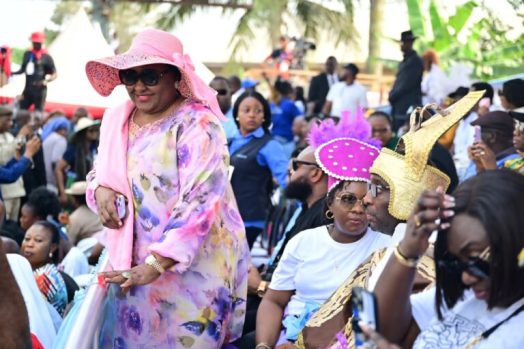The city of Calabar, Cross River State, came alive as dignitaries from across Nigeria and beyond gathered for the 2024 Carnival Calabar.
The event, themed “Our Shared Prosperity,” was attended by Hajia Aisha Buhari, wife of the immediate past president of Nigeria, and her children, as well as governors AbdulRahman AbdulRasaq of Kwara and Ahmed Usman Ododo of Kogi.
In his address, Cross River State Governor Prince Bassey Otu emphasized the international significance of the carnival, highlighting the need to build economic, social, and cultural prosperity for the benefit of all.
He praised the initiators of the carnival, including former governors Donald Duke, Liyel Imoke, and Prof. Ben Ayade, for their contributions to the event’s growth and success.
Governor AbdulRahman AbdulRasaq of Kwara State commended Governor Otu’s administration for sustaining and enhancing the carnival, noting its impact on Nigeria’s global reputation and the state’s internally generated revenue.
The governor of Kogi State also applauded Governor Otu’s leadership, citing the energy and commitment displayed by participants and residents.
The carnival featured a 12-kilometer procession, with competing and non-competing bands entertaining the crowds while interpreting the theme at various adjudication points. Chairman of the Carnival Commission, Mr. Gab Onah, acknowledged the support of sponsors, including Afrexim Bank, MTN, and Zenith Bank.
This year’s carnival marked a significant milestone, with the introduction of a Diaspora band slated for next year’s edition. As Calabar continues to establish itself as a premier tourist destination, the Carnival Calabar remains a shining example of the city’s vibrant culture and creativity.











